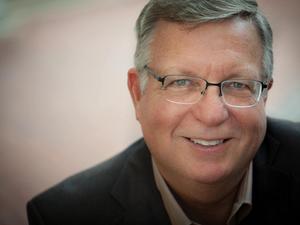
D.C.’s Veriheal Inc. opened 2022 with an ambitious game plan to push into new markets and grow through acquisition — and it’s already taking shape.
The health-tech startup is eyeing a global expansion for its platform, which connects patients seeking medical marijuana cards with doctors, co-CEO and co-founder Joshua Green said in an interview. The company has its eyes set on three countries in North America and Europe, which it’s aiming to break into by year’s end, he said, declining to give further specifics.
Veriheal is positioned well to broaden its reach, Green said, following its first acquisition: It snapped up Plainview, New York’s MarijuanaDoctors.com in February for $3 million, resulting in a combined company with a massive network of doctors practicing in the U.S. medical cannabis sector.
“Immediately, we got access to hundreds of doctors all throughout the U.S.,” Green said. “Right away, off the bat, that helps us because we’re able to serve more patients at a much faster rate.”
The transaction also helped Veriheal double its patient base, now up to about 350,000 people, and balloon its headcount, now to 94 employees — up from 60 a year ago. The company is hiring “pretty aggressively” with open positions across departments, from content writers to HR managers to patient care specialists. The goal, Green said, is to cross 100 people — adding 10 to 20 people — by the end of 2022.
For Veriheal, buying MarijuanaDoctors.com marks the start of a larger M&A strategy. “We do have our eyes on additional companies to help us expand our data footprint,” as well as for a point-of-sale system or electronic medical record enhancements for its platform, among other back-end improvements, Green said.
The cannabis space is challenging, even for companies like Veriheal that don’t interact directly with the marijuana plant, given that cannabis remains federally illegal. “There’s still a lot of restrictive measures around medical cannabis and the approaches we take,” from banking to advertising, Green said. “The more that some of these barriers get lifted, it’s going to be better for everybody, because more people will have access and more people will be aware of what’s around them.”
The company is now stepping up its advertising and brand-building campaign, with billboards in sports stadiums around the country, online ads, and radio and TV commercials.
“We want to spend a lot of time and effort educating people — No. 1, that Veriheal is available and exists, but more than that, we want people to start to associate the name Veriheal with health and wellness, medical cannabis and anything wellness-related,” Green said. “The more we familiarize, the bigger our footprint could be.”
To that end, the business aspires to push into spaces beyond medical marijuana, “but that still connect to the cannabis industry indirectly,” he said. That could mean linking people not just with doctors for their medical cards, but also with online therapy, wellness coaching, sleep therapy and other health-related resources online.
Veriheal’s business model involves a $200 annual fee to use the platform, and a service fee for connecting patients with doctors. It also has a media arm with educational videos to help people learn about medical cannabis. And it’s now working with dispensaries to offer discounts for patients, “making that a full start-to-finish ecosystem,” Green said.
The Black-owned business has grown revenue 80% to 100% year over year, Green said, declining to disclose specific figures. But, he said, this year, the company expects to grow about 50% from 2021 because “we’re spending a lot on R&D and expansion,” and to hover between 50% and 80% annual growth over the next few years. The company generated $50,000 in revenue in 2017 and counted “several million dollars” in revenue as of March 2021, Green told us at the time.
Veriheal is simultaneously running its Cannabis Scholarship Fund, now three years old, with grants for college students in cannabis-related fields, increasing its investment this year to $25,000. It also donates a percentage of all proceeds to nonprofits including the Wounded Warrior Project, American Cancer Society, American Liver Foundation, Alzheimer’s Association and Tourette’s Association of America — five organizations that will expand to 20 by year’s end, Green said.
Green started Veriheal in 2017 with co-founder and co-CEO Sam Adetunji from their experience with a previous venture delivering cannabis paraphernalia — lighters, pipes, papers, bongs. They saw the need, learned more about the industry and built Veriheal from there.
And they bootstrapped the company entirely — selling their houses, cashing out on their retirement and each putting in about $25,000. Veriheal, now profitable, still hasn’t raised a single dollar from investors. “We’re very, very happy being in control of our destiny at the moment,” Green said. But raising funding isn’t off the table, he added. “I think at some point, we most definitely will.”




